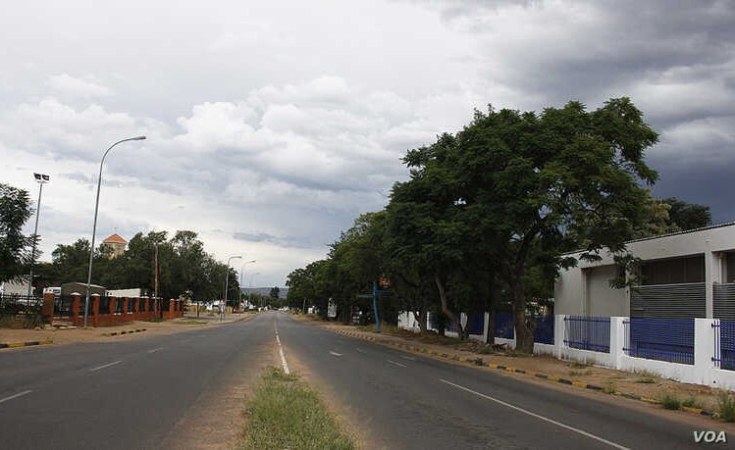Sub-Saharan Africa's economies will begin to recover from last year's coronavirus shock and grow again this year. But a predicted 3.4 percent growth rate will fall behind that of the rest of the world, says the International Monetary Fund (IMF).
In its six-monthly economic outlook for the region, published on Thursday, the agency attributes its expectation of a slow recovery to a slow delivery of vaccines to Africa and the lack of resources to stimulate economies.
"Many advanced economies have secured enough vaccine doses to cover their own populations many times over and are looking to the second half of the year with a renewed sense of hope," the IMF says.
"In Africa, however, with limited purchasing power and few options, many countries will be struggling to simply vaccinate their essential frontline workers this year, and few will achieve widespread availability before 2023."
Similarly, the agency says advanced economies are being helped to recover from the coronavirus pandemic by "trillions in fiscal stimulus and continued accommodation by central banks". But this is not an option in sub-Saharan Africa: "If anything, most entered the second wave [of the pandemic] with depleted fiscal and monetary buffers."
Increased exports, higher commodity prices and a recovery in private consumption and investment are expected to reverse last year's average contraction in the region's economies of 1.9 percent.
"However, per capita output is not expected to return to 2019 levels until after 2022 – in many countries, per capita incomes will not return to pre-crisis levels before 2025," the IMF predicts.
It adds that the region's low-income countries will need U.S. $245 billion between 2021 and 2025 to help recover lost ground, while the whole of sub-Saharan Africa will need $425 billion.
Looking back over the last year, the director of the IMF’s African Department Abebe Aemro Selassie said that although the contraction was not as bad as had been feared, 2020 was still the worst on record.
"The pandemic has had a devastating impact on the region’s economy," he said. "The number of extreme poor in sub-Saharan Africa is projected to have increased by more than 32 million. The 'learning loss' has been enormous, with students missing 67 days of instruction, more than four times the level in advanced economies."
Calling for more to be done to help defeat the virus in Africa, Selassie said in most countries the cost of vaccinating 60 percent of the population would need an increase in health spending of 50 percent.
"For the international community, ensuring vaccine coverage for sub-Saharan Africa is a global public good. Restrictions on the dissemination of vaccines or medical equipment should be avoided, multilateral facilities such as Covax should be fully funded, and excess doses in wealthy countries should be redistributed quickly."
The IMF nevertheless strikes a note of optimism in promoting previous prescriptions for future growth.
"Despite scarring from the crisis," the executive summary of the IMF outlook says, "sub-Saharan Africa’s potential is still undeniable, and the need for bold and transformative reforms is more urgent than ever – these include revenue mobilization, digitalization, trade integration, competition, transparency and governance, and climate-change mitigation."


